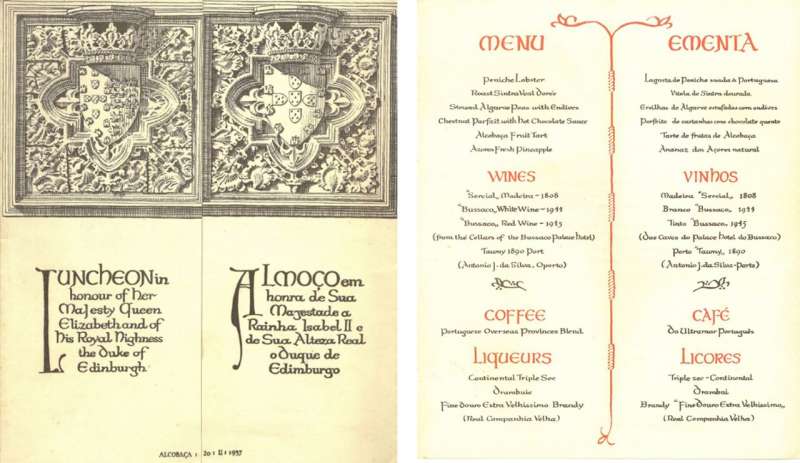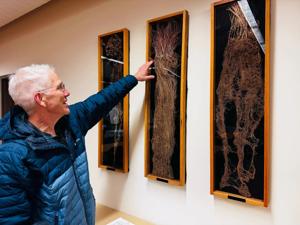Science
Menus as Diplomatic Tools: A Century of Culinary Influence

Food has long been recognized as a medium of communication, transcending cultural boundaries and serving both as a bridge and a barrier in international relations. A recent study from researchers in Portugal has revealed how menus used at diplomatic dinners have acted as significant tools in shaping political alliances and influencing foreign policy over the last century.
The research, led by Óscar Cabral from the Basque Culinary Center, examined menus from 457 diplomatic meals spanning from 1910 to 2023. These meals reflect not only culinary traditions but also the evolving geopolitical landscape of Portugal. “Those meals play a significant role as diplomatic institutions in the execution and continuity of Portuguese foreign policy,” Cabral stated.
Food as a Political Message
Menus have the power to convey political messages and cultural identity. For instance, during the COP25 climate summit in Madrid, dishes were aptly named to highlight pressing environmental issues, such as “Warm seas. Eating imbalance” and “Urgent. Minimize animal protein.” Such intentional naming illustrates how culinary choices can draw attention to broader societal challenges.
The study indicates that while no structured culinary diplomatic strategy was consistently applied, certain historical periods revealed distinct culinary trends. In the first half of the 20th century, lavish meals featuring French cuisine were typical. However, the latter half saw a gradual introduction of Portuguese products, particularly during the Estado Novo period from 1950 to 1961/62. This era marked a significant shift towards promoting Portuguese culinary heritage, with meals crafted to evoke a sense of national identity.
One notable example is the 1957 ‘regional lunch’ for Queen Elizabeth II, which showcased dishes like lobster and fruit tarts sourced from specific Portuguese regions, embodying the concept of ‘Portugality.’
Culinary Diplomacy in Action
The role of food in diplomacy is multifaceted. The researchers identified five main functions of diplomatic meals:
1. **Tactical Meals**: Often associated with territorial negotiations.
2. **Geopolitical Meals**: Aimed at renewing alliances.
3. **Economic Diplomacy Meals**: Foster commercial relations.
4. **Scientific and Cultural Cooperation Meals**: Highlight shared interests.
5. **Cultural Proximity Meals**: Strengthen ties with nations that share culinary traditions.
Cabral noted that menus often feature dishes closely tied to a country’s national gastronomy, such as Cozido à Portuguesa (Portuguese stew) or traditional codfish recipes, thereby reinforcing cultural connections.
As Portugal’s former colonies gained independence, the understanding of Portuguese cuisine evolved. For example, coffee was simply referred to without indicating its country of origin, reflecting a shift away from colonial terminology.
The findings emphasize the necessity of integrating gastronomy into national strategies to enhance global perceptions of Portuguese culture. “Our study illustrates how national cuisines can be strategically used to strengthen a country’s global standing,” Cabral explained.
While the research provides valuable insights, it is limited by the availability of archival materials from certain periods. Further analysis could help clarify seemingly contradictory menu choices, such as serving roast beef to the Indian president in 1990, which raises questions about cultural identity in culinary diplomacy.
One particularly interesting dish was the Consommé de presunto de Barrancos, a soup made with cured ham from Barrancos, served to King Felipe VI of Spain in 2016. This dish combined French culinary techniques with a distinctly Portuguese ingredient, demonstrating the complexities of national identities in gastronomy.
As this research illuminates, food serves not merely as sustenance but as a potent instrument in international diplomacy, capable of fostering understanding, creating alliances, and reflecting the intricate tapestry of cultural identity.
-

 Top Stories1 month ago
Top Stories1 month agoRachel Campos-Duffy Exits FOX Noticias; Andrea Linares Steps In
-

 Entertainment15 hours ago
Entertainment15 hours agoJayda Cheaves Claims Lil Baby and Ari Fletcher Had an Affair
-

 Top Stories2 weeks ago
Top Stories2 weeks agoPiper Rockelle Shatters Record with $2.3M First Day on OnlyFans
-

 Top Stories2 weeks ago
Top Stories2 weeks agoMeta’s 2026 AI Policy Sparks Outrage Over Privacy Concerns
-

 Sports2 weeks ago
Sports2 weeks agoLeon Goretzka Considers Barcelona Move as Transfer Window Approaches
-

 Top Stories2 weeks ago
Top Stories2 weeks agoUrgent Update: Denver Fire Forces Mass Evacuations, 100+ Firefighters Battling Blaze
-

 Health2 months ago
Health2 months agoTerry Bradshaw Updates Fans on Health After Absence from FOX NFL Sunday
-

 Top Stories2 weeks ago
Top Stories2 weeks agoOnlyFans Creator Lily Phillips Reconnects with Faith in Rebaptism
-

 Sports1 week ago
Sports1 week agoSouth Carolina Faces Arkansas in Key Women’s Basketball Clash
-

 Top Stories1 week ago
Top Stories1 week agoCBS Officially Renames Yellowstone Spin-off to Marshals
-

 Top Stories2 weeks ago
Top Stories2 weeks agoOregon Pilot and Three Niece Die in Arizona Helicopter Crash
-

 Entertainment2 weeks ago
Entertainment2 weeks agoTom Brady Signals Disinterest in Alix Earle Over Privacy Concerns




